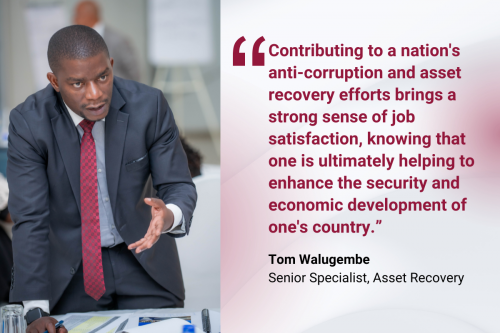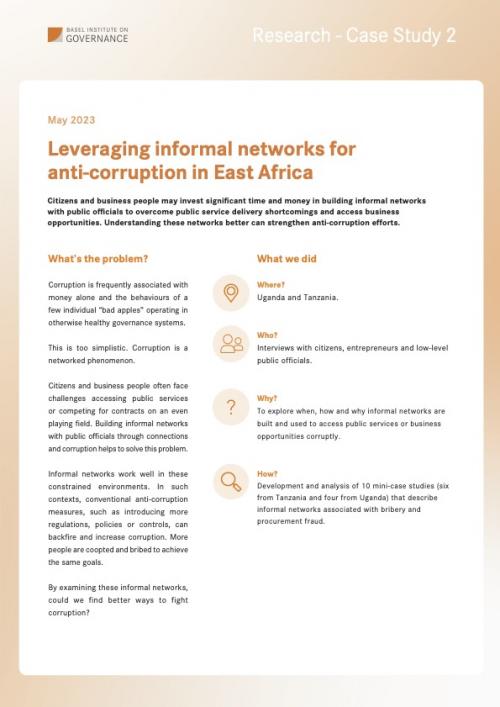Uganda National Risk Assessment well on track
Uganda commenced the National Risk Assessment (NRA) process in early 2016 using the World Bank’s NRA tool and methodology to identify, assess and mitigate its Money Laundering/Terrorism Financing risks. Experts of the International Centre for Asset Recovery (ICAR) have been providing technical assistance and throughout the process that is now on the brink of being successfully completed.
The purpose of the NRA process is to effectively analyze and comprehend a country’s real and existing corruption, money laundering and terrorist financing risks. Such an assessment serves as a useful precursory tool for a country that is keen to strengthen its national capacities to prevent and detect corruption, money laundering and terrorist financing.
Recently, within the context of the Basel Institute’s engagement in the “Strengthening Uganda’s Anti-Corruption Response (SUGAR)” project, ICAR experts participated in a 3-day technical workshop in relation to Uganda’s NRA process, organized by the World Bank. Representatives from Uganda’s governmental authorities, supervisory authorities and the private sector met in Kampala from 14 – 16 November 2016 to discuss the findings and action plans resulting from the first draft of the NRA report for Uganda.
The results of the workshop showed that Uganda has successfully met all process deadlines and that it will conclude the NRA process within a record time of only one year. It was acknowledged that Uganda’s NRA experience has been exemplary in that it has demonstrated remarkable coordination and cooperation on the part of all affected and involved stakeholders, private and public, to follow through on the process from start to end.
About the SUGAR project
The overall aim of the SUGAR project, funded by the Department for International Development (DFID) and implemented by a consortium led by Adam Smith International, is to address corruption in Uganda by supporting several central governmental institutions at the same time in a “chain linked” approach to increase the risk for those engaging in corruption. More information on the project go to the DFID website.


